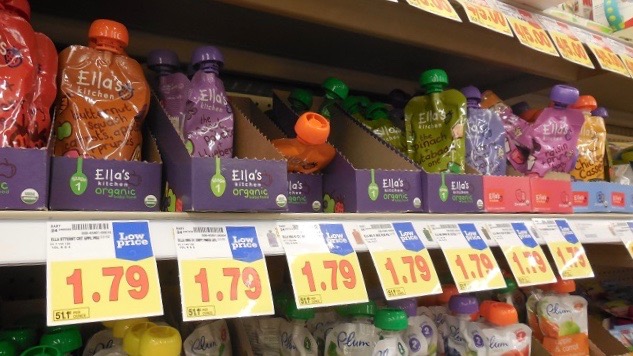A new report from First Steps Nutrition Trust indicates that an overwhelming number of children in the United Kingdom rely on a diet dominated by ultra-processed foods. According to the report, 61% of the total average energy among children aged two to five originates from ultra-processed foods, which have long been associated with an increased risk of developing obesity and other non-communicable diseases.
The report comes at a time when the UK is facing a cost of living crisis that is affecting the price of food in particular. Recent data has revealed that families with children, especially those with children under the age of four, are particularly affected by the cost of living crisis and experience a higher prevalence of food insecurity. Due to soaring food prices, many families rely on ready-made meals, which are often ultra-processed, in order to reduce expenses. The report emphasizes that in order to prevent the long-term negative effects of diets centered around ultra-processed foods, the government should take active steps to expand initiatives like Health Start and also restrict the influence of the food industry, particularly regarding marketing practices.
Infant feeding in the UK heavily relies on the consumption of breastmilk substitutes. According to the latest data examined in the report, 57% of six-month-olds in Scotland are exclusively fed infant formula. The figures for Wales and Northern Ireland are even higher, with 73% and 79% of six-month-olds relying solely on infant formula, respectively. In England, 88% of six-month-olds are exclusively fed infant formula, setting the stage for future diets centered around ultra-processed foods.
📚⚠️ The evidence is clear: #UPF-rich diets are linked to ill-health, incl obesity, from infancy to adulthood. It is likely that there are a range of overlapping mechanisms – it’s NOT simply that they’re more likely to be high in fat, salt, & sugar #HFSS pic.twitter.com/8Hy3d5CaIn
— First Steps Nutrition Trust (@1stepsnutrition) June 8, 2023
The availability of breastmilk substitutes is necessary for families who are unable to initiate or continue breastfeeding in accordance with World Health Organization recommendations. However, a significant number of families turn to infant formula due to the influence of aggressive marketing strategies employed by the industry, which sometimes implies that formula feeding offers advantages over breastfeeding.
These marketing tactics not only have health implications for both children and women but are also contributing to the monthly expenses of families. The prices of infant formula in the UK have steadily increased since 2020, making the cheapest brand unaffordable even with the Healthy Start subsidy. In May 2023, the subsidy could cover £34.00 (USD 42.70) worth of formula per month, while the cheapest brand cost £39.00 (USD 49) per month.
The industry’s marketing practices also impact the dietary habits of children at a later age. By utilizing marketing techniques that appeal to children, such as featuring cartoon characters on packaging, the industry presents their products as desirable to children, despite often lacking the nutritional benefits of less processed foods. The First Steps Nutrition report also highlights that marketing practices can convince families that pre-packaged food is superior to meals prepared from fresh ingredients, diminishing confidence in their own cooking abilities.
As a result of these factors, 72% of children between the ages of seven and nine months consume a commercial meal as one of their main daily meals. This means that the majority of children in the UK are deprived of the advantages associated with developing healthier eating habits, including exposure to various food textures and the consumption of minimally processed or unprocessed foods.
The report warns that public health authorities should intervene by improving nutrition guidelines and acknowledging the risks associated with ultra-processed foods, similar to the actions taken by health authorities in Mexico and Brazil in recent years.
People’s Health Dispatch is a fortnightly bulletin published by the People’s Health Movement and Peoples Dispatch. For more articles and to subscribe to People’s Health Dispatch, click here.





